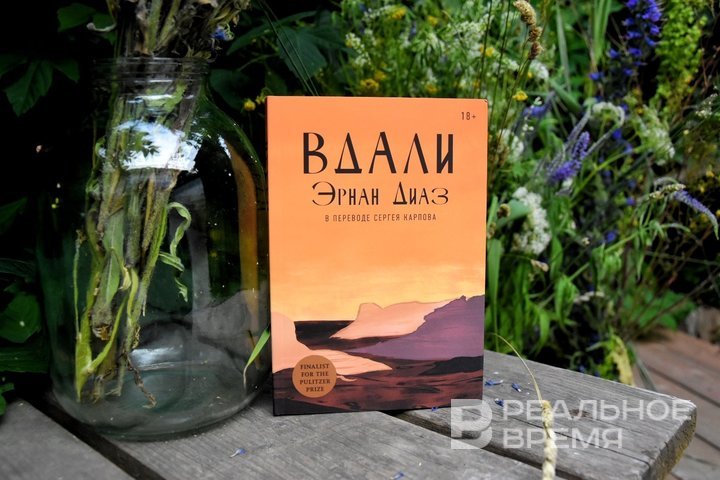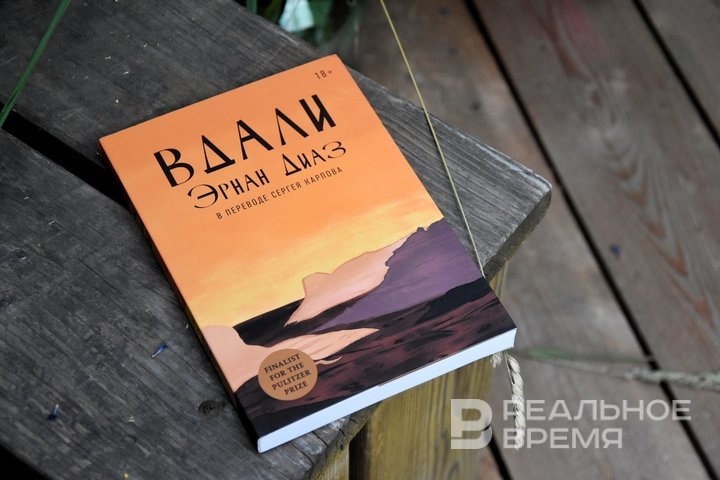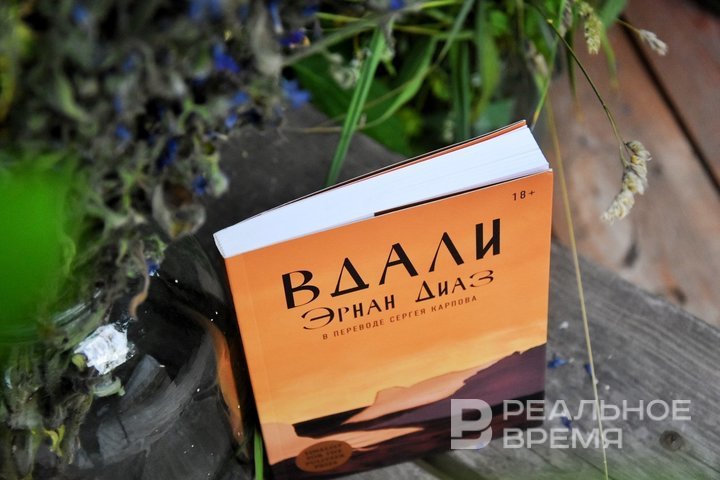A giant from the Swedish hinterland: how Hernán Diaz rewrites the myth of the Wild West
A man grows, America burns, illusions vanish. In the Distance is not a novel about a hero, but a chronicle of how a hero vanishes

A naked giant with white hair emerges from the icy waters of the Arctic. His name is Håkan Söderström. All around, there is silence; someone whispers, “So you say that wet duck is the Hawk?” In a moment, he begins to tell his story — slowly, step by step — how he walked across the country, through years, through darkness. Hernán Diaz rewrites the myth of the conquest of America — in reverse, in the style of an antihero, without revolvers, but with loss and loneliness heavier than any burden.
Not the right place, not the right companion, not the right way
America in Hernán Diaz’s novel In the Distance does not begin with hope. It begins with a mistake. Two brothers from a poor Swedish family receive tickets to the New World. The elder, Linus, tells stories about the future. The younger, Håkan, believes them. But chance separates them at the port: Håkan boards the wrong ship and ends up in San Francisco instead of New York, as planned. America is no longer a dream, but a map on which all bearings have been lost.
Håkan walks in a direction no one else does. From West to East — against the myth of settlement. Not a conqueror, but a seeker. Not a hero, but a bewildered giant who, moreover, keeps growing — literally. Håkan increases in size, turning from a teenager into an almost mythological being whose sheer scale both terrifies and amazes. He joins an Irish family of prospectors, whose eyes see only gold. They find a mine, but fail to understand that, in these parts, gold is paid for with lives. The husband is driven off; Håkan is taken captive. Thus begins the first trial — vile and absurd: he becomes the sexual plaything of a toothless woman. Comic? No. Diaz describes it with such bluntness that it becomes deeply unsettling.

Everything that seems permanent disappears. All connections are severed. Everything that resembles a home — burns down. Håkan meets a naturalist, from whom he learns to heal, to understand anatomy, to grasp how animals function. And even humans. His hands save Native Americans after an attack. He finds friends. And loses them. A recurring motif — any warmth is immediately cut short. Only nature remains constant. It is cruel, beautiful, and wordless. Just like him.
For a time, Håkan becomes a protector — in a settler village where the weak are killed. He fights for them. And then — he is an enemy again. His image appears on wanted posters. His name is whispered from person to person. He becomes “the Hawk”, the one people fear. But he does not hunt. He flees. He walks. Again and again. Through canyons, forests, across deserts. He wears a cloak of hides. His hair turns white. His name becomes legend, but the legend is hollow. Because inside him — there is nothing.
A reversed perspective on the myth
Diaz strips the “great American novel” of everything usually deemed essential. There is not a single duel. No saloons. No cowboy code of honour. But there is pain. And an endless journey with no finish line. The frontier myth is turned on its head. The main character does not conquer the land. He retreats from it. Finds no footing in it. He is an outsider everywhere. The American Dream does not unfold into fortune and success — it crumbles into dust and bones.

Hernán Diaz guides the novel through a single lens — everything is seen through Håkan’s eyes. This gives the narrative density, but takes away its breath. Everything is too close, too monotone. Especially in the first third, where scenes shift rapidly, almost mechanically. The storytelling comes alive when the focus turns to nature. Then the language begins to unfold. For example, when Håkan watches the sun over the plain:
The ashen sunlight, sliced and pierced by branches and needles, regained a trace of its glow, scattering in thin, scattered rays over the lichen-covered stones.
Or when he felt that reality was like a “numb limb.” The word reality is key here. It’s often mentioned, described, dismantled. In the Distance is a novel about a man losing his sense of the world. And of himself.

One of the book’s oddities is the narrator. At the beginning, Håkan is a grey-haired old man who surfaces from the water like a mythic creature. He is noticed. Recognised. He begins to speak. But the text that follows is not written by someone who could have spoken it. Håkan never went to school, never spoke English, remained silent for years. And yet the novel is filled with philosophical reflections, complex imagery, words like “metaphysics,” “concept,” “structure of consciousness.” For instance: “Håkan felt the sanctity of the human body and considered even a fleeting glance beneath the skin a blasphemy.” This is not Håkan’s language. It is the author’s.
This gap is evident. And it breeds distrust. Who is truly speaking to the reader — the giant or the professor? Diaz is likely doing this deliberately. He suggests: it is all fiction. And even fiction is dust.
Against the wind, against the legend
A separate matter — women. They are almost absent here. One is the very toothless, comical, and repulsive woman. Another —the sorrowful Swedish mother. And one — a girl named Helen, who cares for her brother. She is the only one who evokes softness, tenderness in Håkan, something that could be called love. But as soon as contact arises between them— her throat is slit. Because in this world, there is room only for pain. No other perspective. Even consolation is unavailable. Håkan walks alone. Until the end.

In the Distance is a countercurrent novel. Against the Western tradition, against the colonial gaze, against the logic of conquest. Håkan walks in the opposite direction. But even there — he finds nothing. Neither his brother. Nor meaning. Not even a goal. Diaz offers no catharsis. No moral conclusion. No revelation. Only the journey. And a man is stripped of everything in it, except the ability to walk. This is not a novel about a hero. It is a novel about the disappearance of the hero. About how strength becomes meaningless if there is nowhere to apply it. About how language can diverge from life. And about how even a legend told at the fire in an icy wilderness can be nothing but ashes.
Håkan surfaces from the icy water. Again. And again he walks. Not toward a goal, but away from it. Because all that was — is already somewhere “in the distance”.
Ekaterina Petrova — a literary reviewer for Realnoe Vremya online newspaper and the host of the Telegram channel Buns with Poppy Seeds.